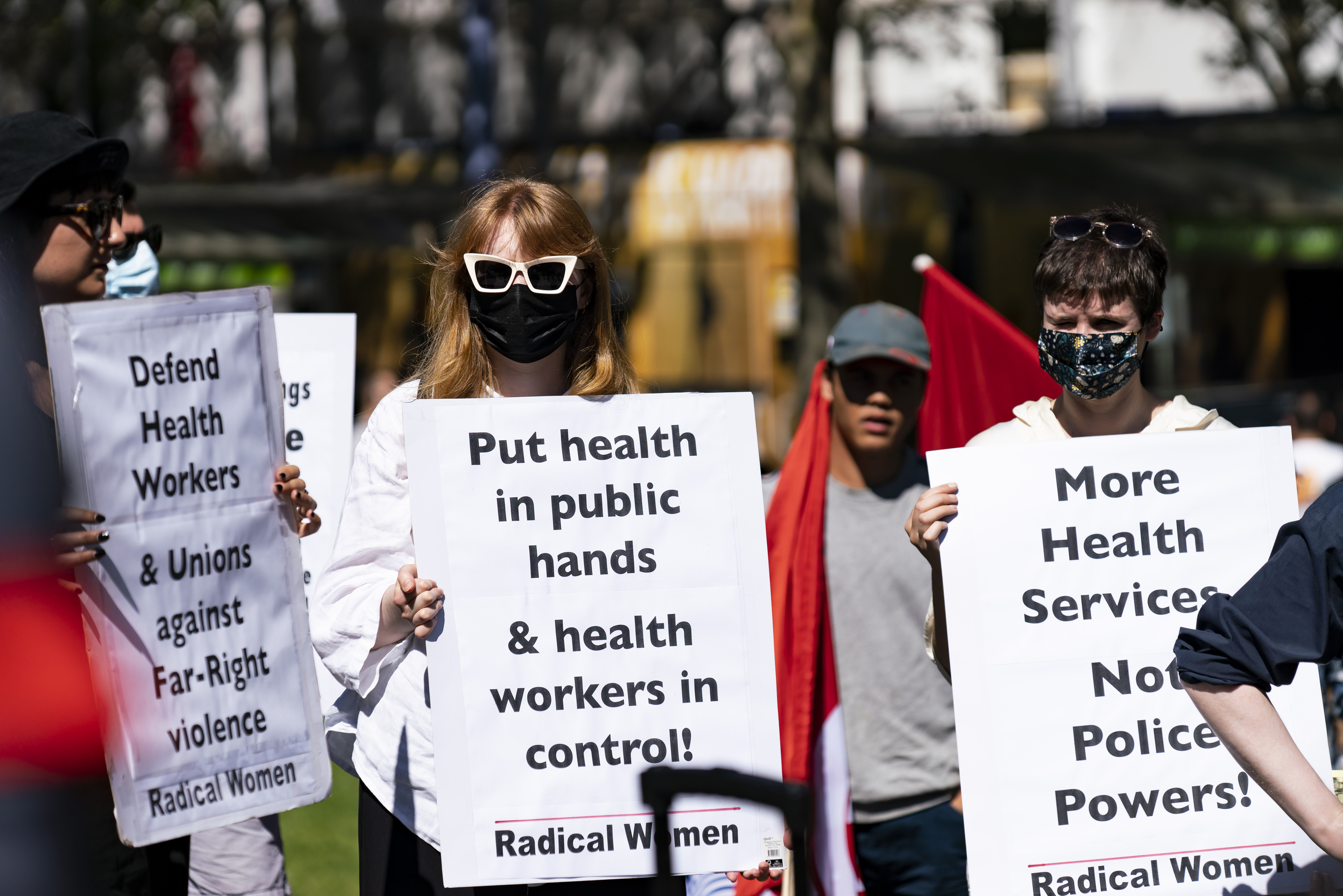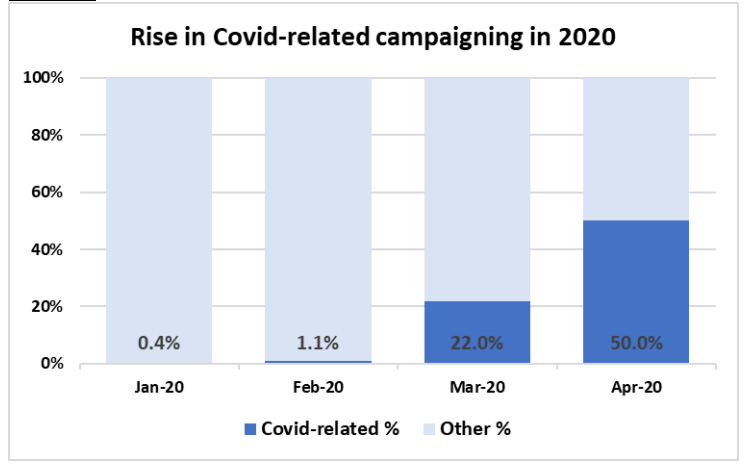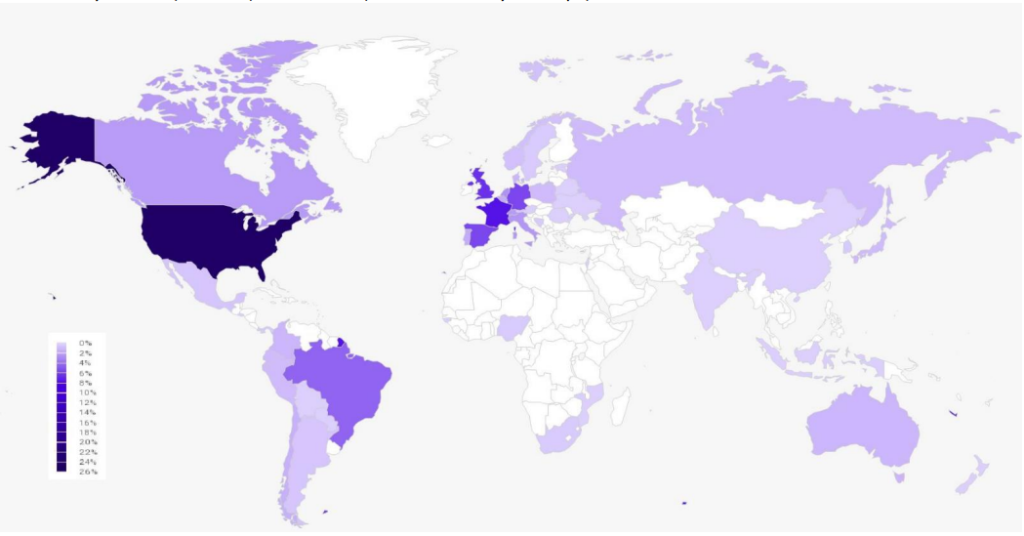
How NGOs adapted to campaigning during the Covid-19 pandemic, converting planned protests events to digital actions, but mindful of the reduced impact. Dedicated social media campaigns aimed at economic reconstruction and public expenditure are becoming mainstream.
After the activists, like everyone else, got their heads around the implications of the Covid-19 crisis and lockdown, they quickly adapted to the new realities – for them, campaigning without physical protest or easy media publicity. They tried converting planned protest events to digital actions, but this sacrificed much of their impact. Some are now trying dedicated social media campaigns which aim to build a rising drip-feed of protest. In the US, in just ten weeks, climate activists used this tactic to get JP Morgan to demote one of its directors, ExxonMobil’s former CEO Lee Raymond. Litigation is another available option as long as the courts are working. In France, Friends of the Earth shut down Amazon with a lawsuit challenging the retailer on worker safety and questioning whether it was truly an essential service under the law.
Strategically, NGOs are realizing that the economic crisis of Covid-19 will leave an even deeper scar on the public consciousness than the health emergency. To this end, they are mobilizing to influence not only political decisions during the crisis, for example, how government bailout funds are spent, but also how economies are rebuilt once coronavirus is defeated. Just a few weeks into the crisis, leading European environmental NGOs, in partnership with European Parliament politicians and the CEOs of several major companies, are already setting out their terms for reconstruction. Their calls for a greener and more sustainable economy go further even than the European Green Deal that was on the table before the crisis struck, and comprise a determined effort to knock down the counter
argument that regulation should be reduced to speed recovery.

Main themes of Covid-19-related campaigning to date
Health and safety in the workplace
▪ Safeguarding employee health, access to personal protective equipment in non-healthcare settings, ensuring
social distancing accessing sickness benefits for gig/low pay workers, making workers continue non-essential
work. Friends of the Earth France successfully sued Amazon on the last point.
Supply chain ethics
▪ Ensuring suppliers are paid for work done or in progress (particularly in garment sector).
Access to affordable medicine
▪ Ensuring medicines for treating Covid-19 and vaccinations are affordable, international sharing of therapeutic
technology and knowledge, enabling health facilities to repair equipment on site without company engineers.
Climate change and fossil fuels
▪ Accelerating decarbonization of economies in light of a sharp fall in fossil fuel consumption.
Companies most praised and criticized over Covid-19
Most praised
- H&M, for committing to pay for outstanding orders from overseas garment suppliers despite closure of all its
stores, and for backing a ‘green recovery’ in Europe. - Nestle and Unilever, along with L’Oreal, Lego, ENEL, Danone, IKEA, H&M, E.ON, PepsiCo, Volvo, Coca-Cola,
Microsoft, Engie, Iberdrola, and SNCF, for backing an NGO call for a ‘Green recovery’ in Europe after Covid-19.
Most criticized
- Air France-KLM, as a beneficiary of French bailout money and for allegedly refusing full refunds to customers.
- TC Energy/Trans Canada, for continuing work on the Keystone XL pipeline, getting Canadian government money,
and lobbying against environmental conditions on firms receiving public funds. - Amazon, for treatment of warehouse workers, ‘illegally’ selling non-essential goods (in France), and ‘enabling’
price gouging by marketplace sellers.
Impact of lockdown on NGO campaigning strategies and tactics
NGOs have for the most part persisted with their usual media activities such as issuing press statements, publishing
reports, and initiating online petition campaigns. However, with the media dominated by coronavirus, little of this
activity is producing tangible mainstream media coverage.
Traditional demonstrations and direct actions have been replaced by digital actions (for example, supporters joining
online instead of in person) or occasionally, by ‘socially distanced’ protests (a handful of activists standing 2m apart),
social media hashtag ‘blitzes’, window banners and slogan chanting. Greenpeace has tried drive-by hologram and
shadow projections on EU and government buildings and company headquarters. Building dripfeed campaigns
appear to be more effective (e.g. the campaign to get JPMorgan to demote director Lee Raymond).
Notable hashtags from online protests included #DigitalStrike, #ClimateStrike, and #WebAgainstSyngenta.
Geographical distribution of Covid-19 related campaigning
Most active country for Covid-19 campaigning to date has been the US (dominant issue is worker protection),
followed by France (Amazon) and the UK (customer safety in shops).

What our clients say
What our
clients say
“In our experience, SIGWATCH is one of the few sources of ESG data we can absolutely trust to be reliable.”
“Our company is based in Japan. Most employees are Japanese and we don’t really know what is happening around the world. SIGWATCH gives us visibility of the global ESG issues and trends we need to have on our radar.”
“With SIGWATCH, we’re able to absorb NGO data in an awesome way that
simply wouldn’t be possible otherwise. We can hear the NGOs’ voice, to better
strategize and get ahead of trending issues.”
“With social listening, we’re limited to knowing what people are saying only about OECD. With SIGWATCH, we see not only what is being said about us, but also what is being said about everyone else.”
“A lot is said and written about sustainability and ESG every day but no one,
apart from SIGWATCH, provides the big picture, SIGWATCH offers a comprehensive overview of what’s happening in the corporate sustainability
world rather than just a narrow snapshot.”
“SIGWATCH is a good source to show that NGOs are watching us and watching our clients, and we definitely need to be aware of the issues they are bringing up.”

